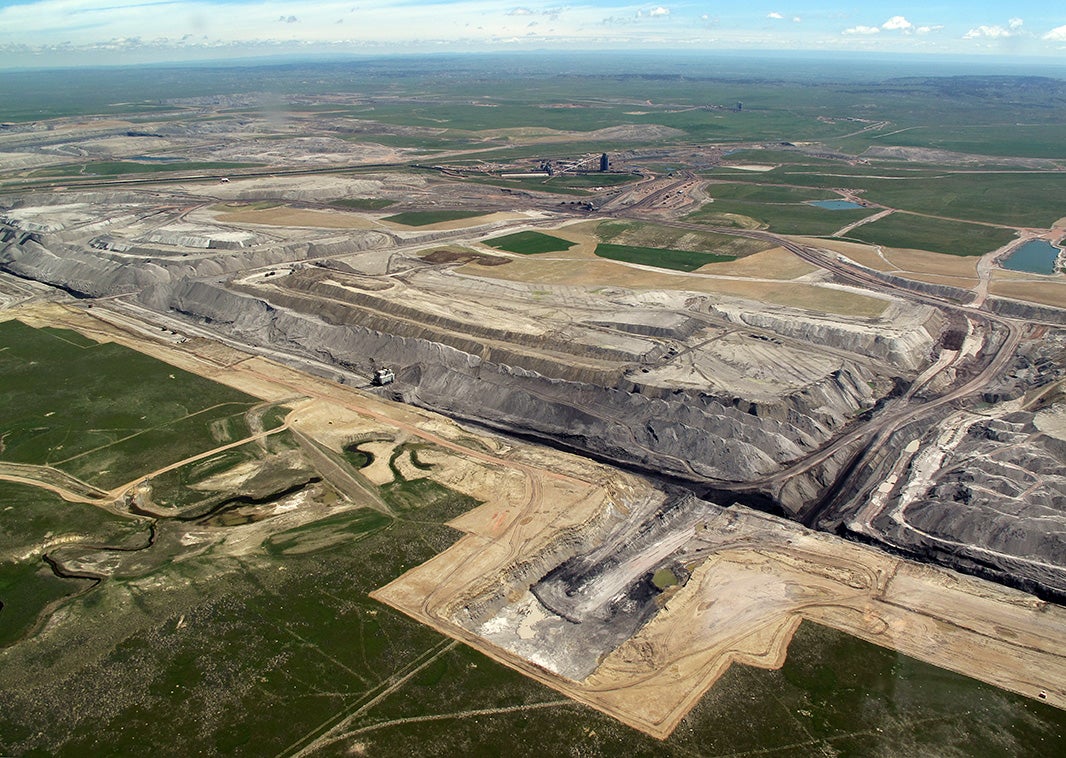Earthjustice goes to court for our planet.
We’re here because the earth needs a good lawyer.
Coal Leasing Moratorium Opens Door to a Cleaner Energy Future
This page was published 3 years ago. Find the latest on Earthjustice’s work.
A ruling by a federal judge in Montana District Court has halted coal leasing on federal lands, creating a golden opportunity for the Biden administration to advance the nation into a clean energy future.
The court decision calls attention to the environmental and economic damage created by the coal industry. Much of the coal produced in the United States comes from federally owned land that is leased to coal companies for mining. That leasing program is now on pause for fuller consideration of the cost that coal inflicts on human health and the environment as a whole. It’s now up to the Biden administration to take more permanent and comprehensive action to protect public lands and nearby communities from pollution and habitat destruction.
Earthjustice represented environmental groups and the Northern Cheyenne Tribe in the lawsuit, which challenged the government’s inadequate assessment of the damage caused by coal. The moratorium directly advances at least three of Earthjustice’s key goals: eliminating the use of fossil fuels, protecting clean air and water, and undoing the concentration of pollution in communities of color.
What Happened
- The Obama administration’s first declared a moratorium in 2016 on the leasing of federal land for coal mining. Trump overturned it the next year.
- The Montana District Court ruling on Aug. 12 reinstated the moratorium on the grounds that the impact of coal leasing is insufficiently understood or accounted for in the leasing process.
- Despite strong climate rhetoric, the Biden administration has functionally supported the Trump administration policy by continuing to process applications for new leases and defending the policy in court. That mismatch is now in the spotlight, and the administration has an opportunity to pivot in a way that helps protect the climate.
The U.S. is currently on track to reach a record high of fossil fuel production in 2023 and steps like eliminating coal extraction on federal lands are critical to turn the tide.
Coal’s Outsized Impact
- Coal production isn’t compatible with preserving a livable climate. According to a 2021 study, 90% of coal reserves worldwide must remain unextracted by 2050 to meet a 1.5°C global warming target. This moratorium – if followed up by decisive action by the administration – will help meet that goal.
- Coal is particularly dirty. Coal power harms communities throughout its production cycle – from mining accidents, to habitat destruction, to air pollution and greenhouse gas emissions as it is burned, to the toxic coal ash left over that contaminates water.
- The scope of coal production on federal land is significant – as of 2021, the Bureau of Land Management (BLM) administered 299 federal coal leases across approximately 458,600 acres.
What Happens Next?
- Under the terms of the moratorium, President Biden and Interior Secretary Deb Haaland have the responsibility to examine the impact of the leasing of federal land for coal extraction.
- Government options include phasing out existing coal leases, which would have a compounding positive impact on greenhouse gas emissions and protect vulnerable habitats on or near leasing sites.
- The Biden administration can and must increase coal lease royalty rates to properly account for the impact that the industry inflicts upon the general public and the global environment. If the coal industry cannot pay the full cost of mining federal coal, it must not be allowed to continue.
- BLM, Congress, and state agencies can and should work together to mitigate unemployment and other hardships that coal-mining communities will face as the federal leasing program is phased out and the coal industry is finally idled completely.
